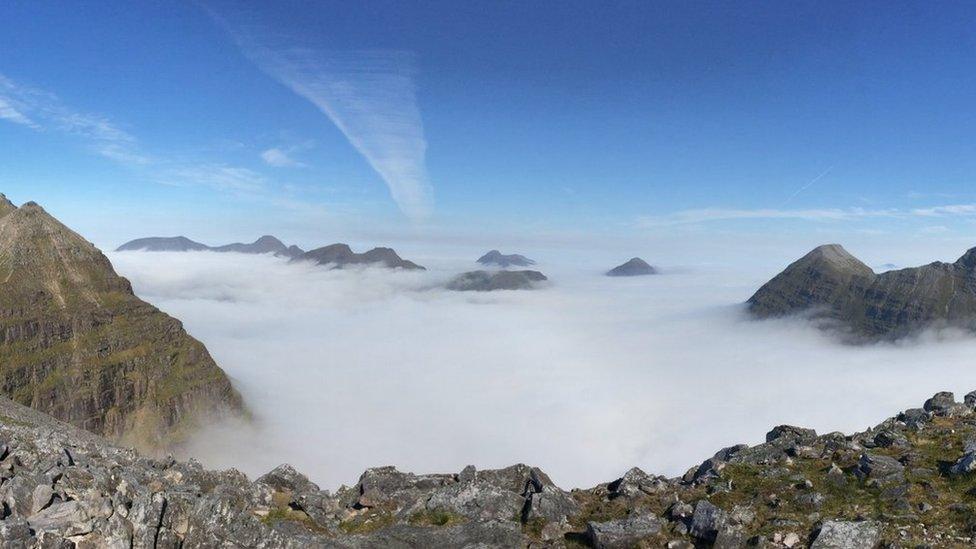Torridon may show signs of 'unknown ice age'
- Published

The possible evidence was found in rocks in Torridon
Evidence suggesting the possibility of a previously unknown ice age millions of years ago has been discovered in the north west Highlands, scientists say.
University of Aberdeen geologists have found features in rocks in Torridon caused by pebbles falling from melting icebergs to the bottom of lakes.
The rocks date to a "relatively calm" period in the Earth's evolution dubbed the "boring billion".
The researchers said it may be the first signs of glaciation at this time.
The boring billion took place from 1,800 to 800 million years ago.
'First evidence'
Earth's history includes several major ice ages, including the Huronian glaciation, the oldest known ice age which happened more than two billion years ago.
Published in the Scottish Journal of Geology, the new discovery was made by Prof Adrian Hartley and fellow scientists at the University of Aberdeen's School of Geosciences.
Prof Hartley said: "In Earth's middle ages it is thought that not very much happened on the planet.
"Throughout this so-called 'boring billion' the global climate was temperate and unchanged. Life was limited to algae in the ocean, the land was completely barren and oxygen was 10% of what it is now.
"Until now, no evidence for climate change had been discovered but our study has shown there was ice at Earth's surface during this period."
The possible glaciation came at a time when Scotland was located at the same latitude as South Africa.
Prof Hartley said: "It's the first evidence globally for glaciation at this time in Earth's history - proving it wasn't such a boring billion after all."